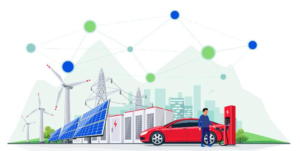 Digital technologies play a central role in operating the future grid. When we advise distribution clients, we confirm that process optimization –by implementing digital asset management, deploying smart infrastructure and supporting more connected workers– will be critical to transform their core business.
Digital technologies play a central role in operating the future grid. When we advise distribution clients, we confirm that process optimization –by implementing digital asset management, deploying smart infrastructure and supporting more connected workers– will be critical to transform their core business.
Digital technologies, such as advanced analytics, robotics, digital twins and drones among others will be key enablers. What’s more, the winners will move away from the old business model of being predominantly an asset owner and operator to an intelligent grid optimizer that puts services to customers at the heart of their strategies. This should allow distribution companies to more effectively accommodate new customer requests for adding distributed energy resources. It will also enable future demand growth from the electrification of transportation, as well as maximizing income from new regulatory incentive mechanisms.
As grid customers increasingly participate in the energy system through distributed energy resources, demand response programs and microgrids, operators will have an opportunity to increasingly connect with their customers and create new revenue streams. Providing new services platforms for example would allow consumers to adapt their electricity consumption habits such as electric vehicle (EV) charging times in response to financial incentives. However, few companies will have all the resources to fully master the technologies of today and tomorrow. The rapid pace and complexity of innovative technologies will call for distribution companies to increasingly tap into an ecosystem of partnerships, innovation hubs and research labs. Forbes
